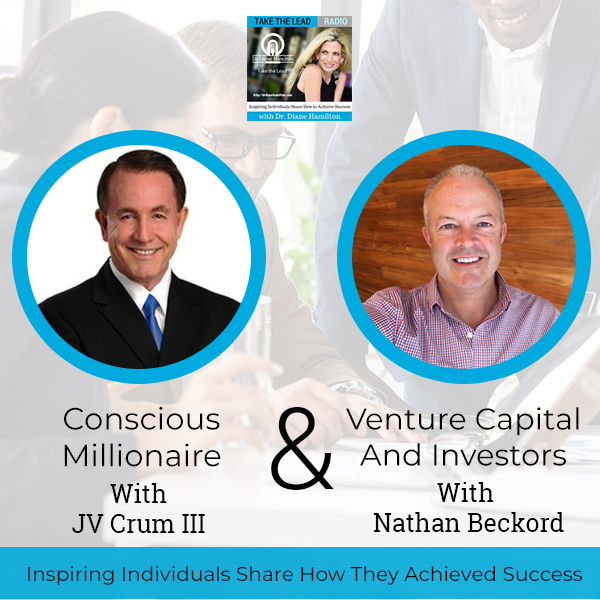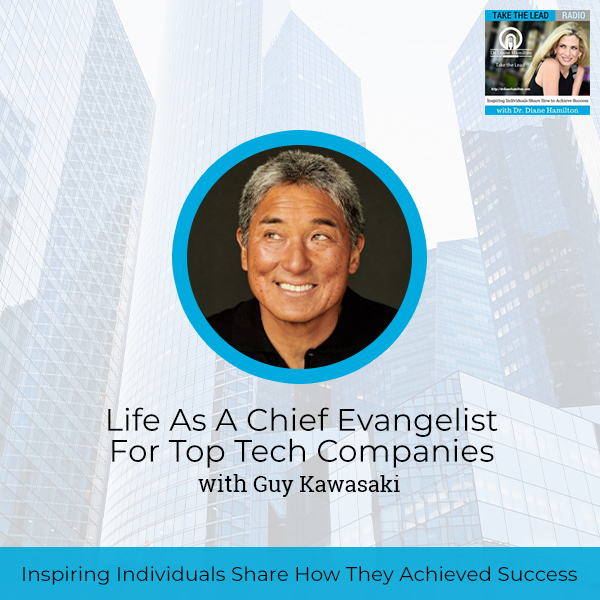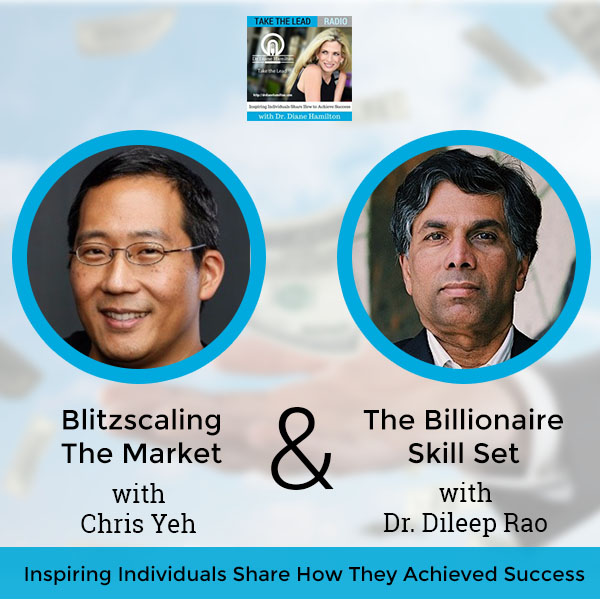Conscious Millionaire With JV Crum III And Venture Capital And Investors With Nathan Beckord

Conscious Millionaire With JV Crum III And Venture Capital And Investors With Nathan Beckord
How can you grow your business consciously? In today’s episode, Dr. Diane Hamilton interviews JV Crum III, a mindset and strategy expert and author of Conscious Millionaire. JV gives some bits and pieces about his book and some brief guidance on how you too can reach millions of dollars for your business.
Nathan Beckord, the CEO of Foundersuite.com educates us about venture capital and how to raise more for your business. He shares some tips on creating and delivering the right pitch for enticing investors. Learn more from Nathan as he teaches you how to scale up your enterprise the right way.

Life As A Chief Evangelist For Top Tech Companies With Guy Kawasaki
What is it like working with Steve Jobs? Guy Kawasaki is the “guy” who can answer this question firsthand. Guy is presently the Chief Evangelist of Canva, an online graphic design tool. Having worked for Apple, he shares his experience working with the company and its esteemed founder. He also talks about his current experience working with Canva and what the platform is all about. Imparting some concepts from his book called Wise Guy: Lessons from A Life Guy shares some insights on jumping curves as well as the benefits of doing more podcasting than professional speaking.
Continue reading “Life As A Chief Evangelist For Top Tech Companies With Guy Kawasaki”

Blitzscaling The Market with Chris Yeh and The Billionaire Skill Set with Dr. Dileep Rao
Entrepreneurs: Help for Getting Started
I had to opportunity to interview Martin “Marty” Zwilling this week. Marty has an impressive background. He is a former executive with IBM. He has served on multiple advisory boards. He currently works as an author and consultant. His company, Startup Professionals, is dedicated to helping new entrepreneurs succeed. He gave some great insight regarding some of the toughest issues facing new entrepreneurs. The following is our six-part interview. Click on the link below the picture. Scroll to next video with the arrow at the bottom after watching each one. Continue reading “Entrepreneurs: Help for Getting Started”
Top 7 Ways for Entrepreneurs to Obtain Funding
The good news is that entrepreneurs have more options for funding than in the past. According to Entrepreneur.com, access to capital is improving for small businesses. This may be a frightening time to begin an entrepreneurial venture. However, there are an increasing number of available financing options. The following list contains some of the most prevalent in the current market.
- Banks – The number of people going to banks for loans is increasing. “According to a report this week on banks with more than $10 billion in assets, the overall volume of loan applications increased by 5.6 percent in September over August, reports Biz2Credit, an online credit marketplace in New York City that connects small and midsize businesses with lenders.”
- SBA Loans – Entrepreneurs have also traditionally gone with loans from the Small Business Association. “In 2011… it backed $30.5 billion in 61,689 loans to small business.”
- Angel Investors – “Angels invested $9.2 billion in 27,280 startups in the first two quarters of 2012, a 3.1 percent increase in dollars and a 3.7 percent increase in number of entrepreneurial ventures over the same time in 2011, according to a report this week from the Center for Venture Research at the University of New Hampshire.”
- Venture Capitalists – “In 2012, venture capital firms have raised $16.2 billion, representing a 31 percent increase from the $12.4 billion raised in the first nine months of 2011, according to a report from Thomson Reuters and the National Venture Capital Association released this week.”
- Crowdfunding – There have been some unusual ways that entrepreneurs have managed to raise funds. Crowdfunding has been growing in popularity. Entrepreneurs can raise funds through networking on the internet. Supports fund other people’s ideas or interests.
- Microlending – One of the top microlending sites is Kiva.org. Kiva is “a non-profit organization with a mission to connect people through lending to alleviate poverty. Leveraging the internet and a worldwide network of microfinance institutions, Kiva lets individuals lend as little as $25 to help create opportunity around the world.”
- Pledging – Kickstarter is a unique site allows entrepreneurs to keep ownership and control over their work while tens of thousands of people pledge millions of dollars to help finance their creative ideas. The idea must reach its funding goal or no money changes hands. Entrepreneurs that receive their anticipated funds, can test concepts without risk.
Related Articles: